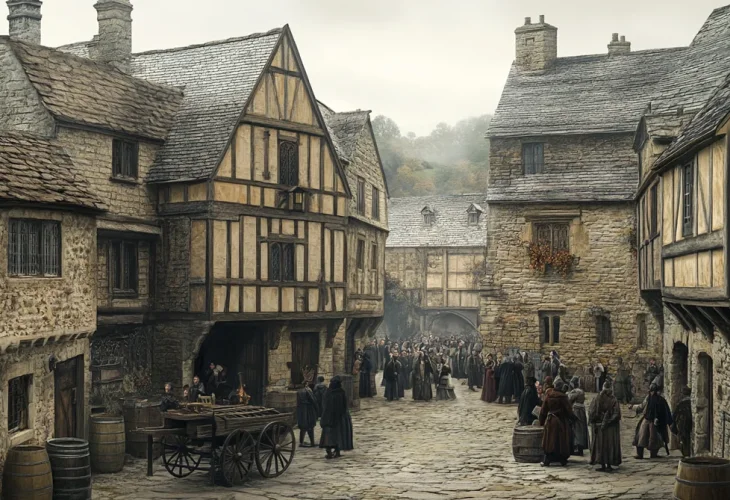History and Archaeology
Rescued by a Miracle: The Story of Rabbi Berechiah of Lincoln
On the day of his wedding, Rabbi Berechiah was arrested for a murder that never happened and saved by a mysterious knight

On July 31, 1255, the Jewish community in Lincoln, England, gathered to celebrate a wedding. Lincoln, though now a small town near modern-day Manchester, was then the third-largest city in England. What should have been a joyful day quickly turned into a nightmare.
That same day, an eight-year-old Christian boy named Hugh disappeared. Later, his body was found in a well. Almost immediately, Christians spread the claim that the Jews had kidnapped him and used his blood for making matzah, horrifying lie based on the infamous blood libel.
One Christian monk wrote a detailed account, full of imagination and cruelty. According to his version, the Jews hid the boy, fed him sweet foods to keep him quiet, and sent messages across England inviting Jews to join in a “sacrifice.” He claimed they appointed a Jewish “judge” to act like Pontius Pilate, the Roman governor who condemned the Christian messiah. Then, they supposedly tortured the boy with whips, thorns, and mockery, made him drink bitter gall, stabbed him, and crucified him and then hid his body in a well.
This gruesome fantasy made sense to many Christians of the time. The house closest to the well belonged to a Jew named Copin. He was tortured until he “confessed”, a confession extracted through pain and fear. Based on this so-called confession, King Henry III ordered the arrest of 90 Jews.
The Jewish community knew there was no real trial. The verdict had already been decided. The story was invented ahead of time, and the process was just a performance to force confessions. Eighteen Jews who refused to cooperate were hanged. The remaining 72 were left in prison, with their lives hanging by a thread.
Among them was the groom himself, Rabbi Berechiah, the youngest son of the great Rabbi Moshe of Londresh. Rabbi Moshe was a well-known Tosafist, and his teachings appear in Tosafot Chachmei Anglia, a collection of Torah commentaries by English scholars. Rabbi Moshe’s sons were all respected rabbis, and Berechiah, newly married, was now facing death because of a lie.
And then, a miracle happened.
A knight named Gracias Martini of Toledo, a Spanish Christian with unclear motives, intervened. We don’t know exactly who he was, why he helped, or how he succeeded, but somehow, he convinced the authorities to release Rabbi Berechiah. The young groom went free, even while the others remained in grave danger.
Rabbi Berechiah’s release caused confusion. If he was innocent, could the others be as well? The judges began to question the case. With further investigation, they saw that there was no real evidence connecting the other Jews to the boy’s death. Eventually, all 71 remaining prisoners were freed.
Despite the truth coming to light, the Church continued to spread the original story. The boy, Hugh, was declared a saint. July 27 became his feast day. At Lincoln Cathedral, a special altar was built with carvings of the so-called torture. The site became a place of Christian pilgrimage, feeding more hatred and fear of Jews.
The story became famous in English culture, with ballads and tales describing the “martyred” boy. Even in the 1800s, antisemitic writers still used the false story as “proof” of Jewish evil. The well where the boy’s body was found remains in the city center, with a marker telling the story. Only in 1955 was a small plaque added, quietly noting that the story is unverified and unproven.
Rabbi Berechiah survived and went on to become a great Torah scholar. He was a descendant of Rabbi Shimon of Mainz, and he and his brothers traveled across England teaching Torah. He became a respected halachic authority, though sadly, none of his written commentaries have survived.
This painful story reminds us how easily lies and hatred can destroy lives and how one act of courage or divine help can change the course of history.

